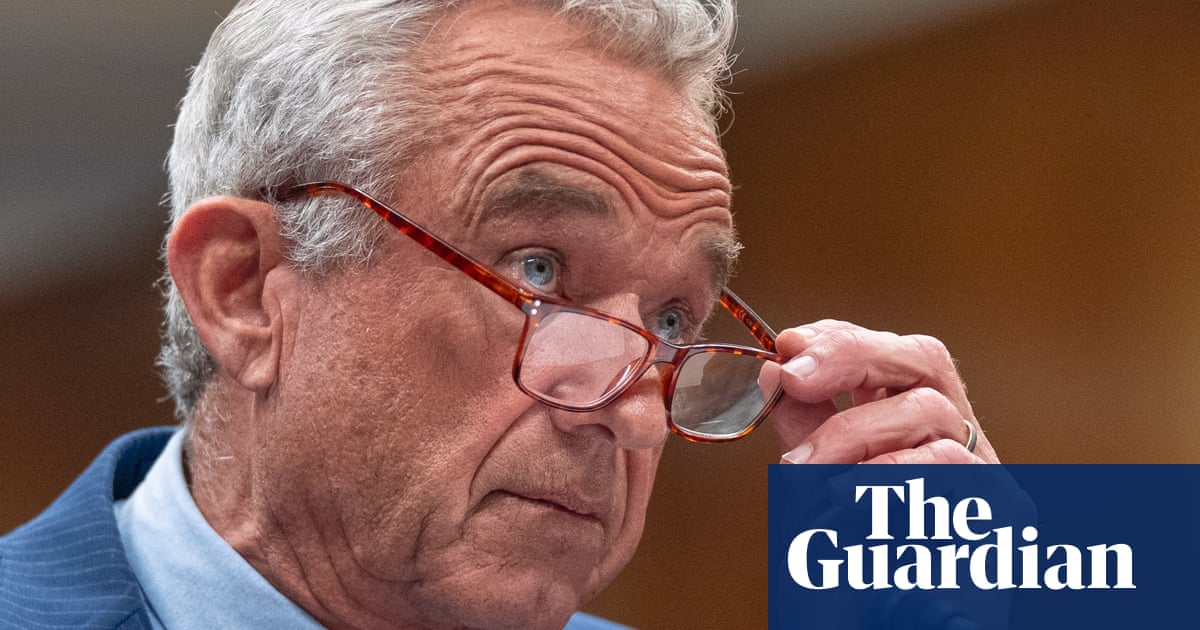Robert F Kennedy Jr’s flagshiphealth commission reportcontains citations to studies that do not exist, according to aninvestigationby the US publication Notus.
The report exposes glaring scientific failures from a health secretary who earlier this week threatened to ban government scientists from publishing in leading medical journals.
The 73-page “Make America healthy again” report – which was commissioned by theTrump administrationto examine the causes of chronic illness, and which Kennedy promoted it as “gold-standard” science backed by more than 500 citations – includes references to seven studies that appear to be entirely invented, and others that the researchers say have been mischaracterized.
Two supposed studies on ADHD medication advertising simply do not exist in the journals where they are claimed to be published. Virginia Commonwealth University confirmed to Notus that researcher Robert L Findling, listed as an author of one paper, never wrote such an article, while another citation leads only to the Kennedy report itself when searched online.
Harold J Farber, a pediatric specialist supposedly behind research on asthma overprescribing, told Notus he never wrote the cited paper and had never worked with the other listed authors.
The US Department ofHealthand Human Services has not immediately responded to a Guardian request for comment.
The citation failures come as Kennedy, a noted skeptic of vaccines,criticized medical publishingthis week, branding top journals the Lancet, New England Journal of Medicine and Jama as “corrupt” and alleging they were controlled by pharmaceutical companies. He outlined plans for creating government-run journals instead.
Beyond the phantom studies in Kennedy’s report, Notus found it systematically misrepresented existing research.
For example, one paper was claimed to show that talking therapy was as effective as psychiatric medication, but the statistician Joanne McKenzie said this was impossible, as “we did not include psychotherapy” in the review.
The sleep researcher Mariana G Figueiro also said her study was mischaracterized, with the report incorrectly stating it involved children rather than college students, and citing the wrong journal entirely.
TheTrump administrationasked Kennedy for the report in order to look at chronic illness causes, from pesticides to mobile phone radiation. Kennedy called it a “milestone” that provides “evidence-based foundation” for sweeping policy changes.
A follow-up “Make Our Children Healthy Again Strategy” report is due in August, raising concerns about the scientific credibility underpinning the administration’s health agenda.
